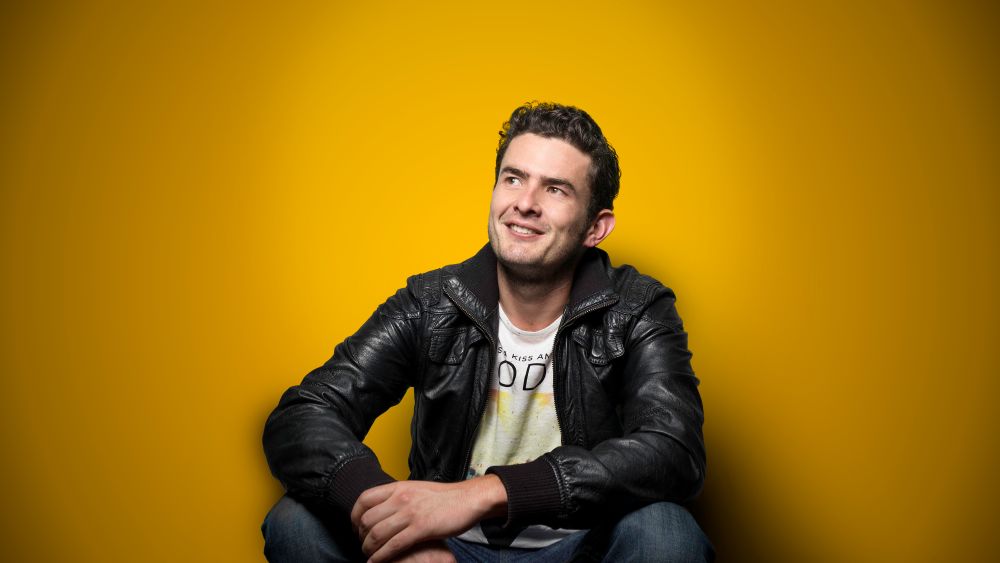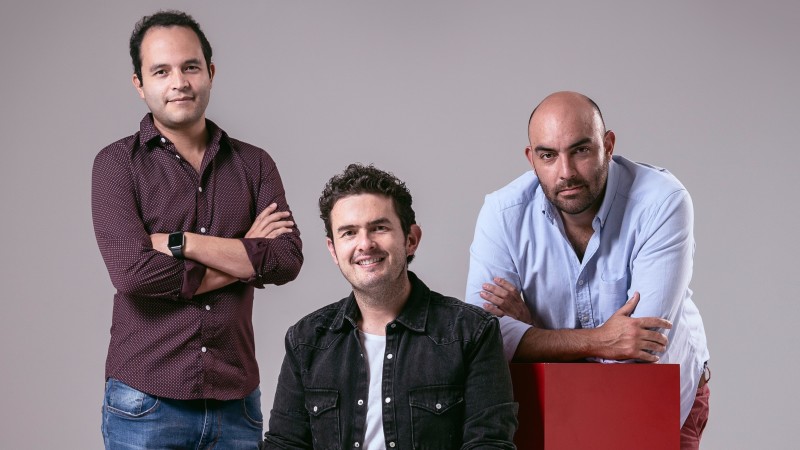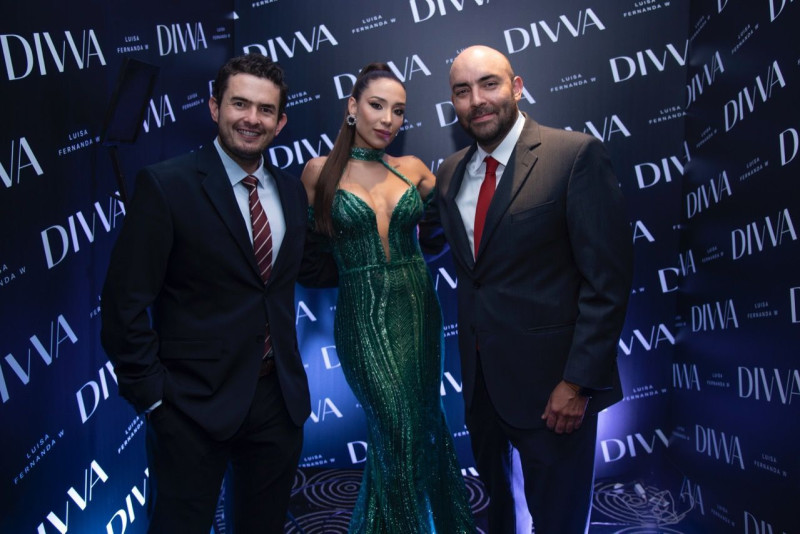- Iterate
- Meet The Team
- Meet LatAmŌĆÖs Newest Creator Economy Pioneer
Meet LatAmŌĆÖs Newest Creator Economy Pioneer
The Org spoke with Novoa, CEO and co-founder of Favik, who shared a little bit of his entrepreneurship story, and told us all about how he ended up being a pioneer in the content creator economy.

We are living in a creatorŌĆÖs economy ŌĆö an era where young children are more likely to want to be YouTubers than astronauts.
The industry, worth more than , was born just over a decade ago with the rise of online platforms like YouTube and Instagram ŌĆö and now TikTok ŌĆö and has more than individuals that consider themselves content creators. Content creation has become the fastest-growing type of small business.
Felipe Novoa, a young serial Colombian entrepreneur, spotted an opportunity to build the first digital brand company in Latin America while in lockdown in 2020. His idea was to enable influencers to monetize their communities beyond traditional partnerships by creating unique, profitable and scalable brands under a revenue share agreement.
Inspired by stories of celebrities monetizing their fame such as Tequila Casamigos, George ClooneyŌĆÖs tequila brand that was sold for to Diageo, and Kylie Cosmetics, Kylie JennerŌĆÖs cosmetic brand that sold a 51% stake to Coty for in 2019, Novoa created Favik, a ŌĆ£brand factoryŌĆØ that raised a pre-seed round of $1.5 million just six months after its launch.
The Org spoke with Novoa, CEO and co-founder of Favik, who shared a little bit of his entrepreneurship story, and told us all about how he ended up being a pioneer in the content creator economy.

Novoa was born in Zipacon, a little town on the outskirts of Bogot├Ī, Colombia. Since childhood he and his three siblings were encouraged by their father to work incessantly for what they wanted.
While they were in school, the Novoa siblings started a humus business (natural compost extracted from a woodland), a small dairy factory and a logistics business that removed intermediation between local farmers and large buyers.
When Novoa finished his studies as a production engineer, he pondered with a college friend why there were energy drinks but not relaxing drinks. This led them to launch the relaxing beverage brand FreeMind in 2010, which instead of caffeine contained herbs and natural elements that helped people relax . After eight years of hard work, awards from the entrepreneurial community and exporting the brand to various countries, they went spectacularly broke, as Novoa recalls. ŌĆ£With FreeMind we made all the possible mistakes in entrepreneurship, and at the same time we learned an incredible deal from the process.ŌĆØ
After FreeMind, Novoa started an early stage fund for startups and became an entrepreneurial advisor. He quickly realized that he missed the thrill of being in the midst of the action. ŌĆ£I felt like a retired old man, giving advice to entrepreneurs and serving on their boards of directors,ŌĆØ he said.
By pure coincidence, he met Mar├Ła Manotas, a renowned influencer in Bogot├Ī with more than 470,000 followers. In one of their conversations Manotas confessed to Novoa that she had always wanted to create a brand that she could sell to her community, but she didnŌĆÖt know where to start.
ŌĆ£That was the moment where everything clickedŌĆØ said Novoa. ŌĆ£I connected the dots between my product creation experience, my purpose driven mission in life, and the missing opportunity no one was attacking in terms of how to monetize the millions of followers influencers have.ŌĆØ
Novoa did his research and found three insights that confirmed this should be his next venture: First, nowhere in the world do influencers have as on people as in Latin America. Second, the ecommerce ecosystem in LatAm is the one with the in the world. And third, many of the 50 million influencers dream of creating their own brand but donŌĆÖt know how or where to start.
In just nine months, amid a still-burgeoning global pandemic, Novoa created ManotaŌĆÖs beauty care line of products from scratch, Everyday Love, and launched it to her tens of thousands of followers. Just four weeks after the launch, they had sold out the entire production.
Not only did they sell out faster than he thought, but the metrics behind the ecommerce were astounding. While a good ecommerce conversion rate, defined as the percentage of visitors that land on your website who complete a purchasing action, is around , this Everyday Love showed conversion rates up to 20 times the average. ŌĆ£It was the most successful minimum value product that I had ever launched in my life,ŌĆØ recalls Novoa.
He suddenly found himself in front of a great opportunity: to build the biggest digital and emotional brand factory in America. ŌĆ£I had to find the best team to take advantage of this opportunity,ŌĆØ he said, and based on the theory, Novoa invited Jos├® Ovalle as COO and Hoovert Arredondo as CTO of Favik.
With the team and the pitch under his arm, Favik raised a pre-seed round of million and started building the tech behind the startup. ŌĆ£Data and rapid experiments are FavikŌĆÖs differentiator; it allows the company to understand each influencerŌĆÖs community, and design and iterate quickly in order to launch the most appealing products or services to their audiences,ŌĆØ said Novoa.
FavikŌĆÖs operation consists of three steps: 1) partnering with the influencer to understand their mission and analyzing their community to co-create her brand; 2) launching the brand where Favik works on product development, ecommerce, and logistics while the influencer does the marketing through their social media channels; and 3) Favik takes the brand to the next level thanks to its dream team of experts.

In less than a year, the team has grown to 30 people. The team has launched two successful brands with a database over one million leads, and the company is now expanding their operations to Mexico and the U.S., where they are working with five new influencers that together account for more than 40 million followers. The weather forecast is on cloud nine for Favik.
Asked regarding the company vision, Novoa sees Favik becoming the ŌĆ£WIX for influencers,ŌĆØ a SaaS company where influencers would be able to connect to FavikŌĆÖs algorithm, receive an audience analysis and allow them to better understand which type of brand and product they should launch to best leverage their community. ŌĆ£Of course, we will offer the end-to-end service to make those brands a reality,ŌĆØ he adds.
Novoa is now working to raise a ŌĆ£juicy,ŌĆØ in his words, seed round to make his vision a reality in 2022. There are already many major VC funds interested in being part of the revolution of the creator economy. ŌĆ£When someone tells me that IŌĆÖm crazy, it's like pouring gasoline into a campfire in my mind. This is the happiest and craziest time of my life.ŌĆØ
Create your own free org chart today!
Show off your great team with a public org chart. Build a culture of recognition, get more exposure, attract new customers, and highlight existing talent to attract more great talent. Click here to get started for free today.
In this article


The ┬▄└“┬ę┬ū helps
you hire great
candidates
Free to use ŌĆō try today
